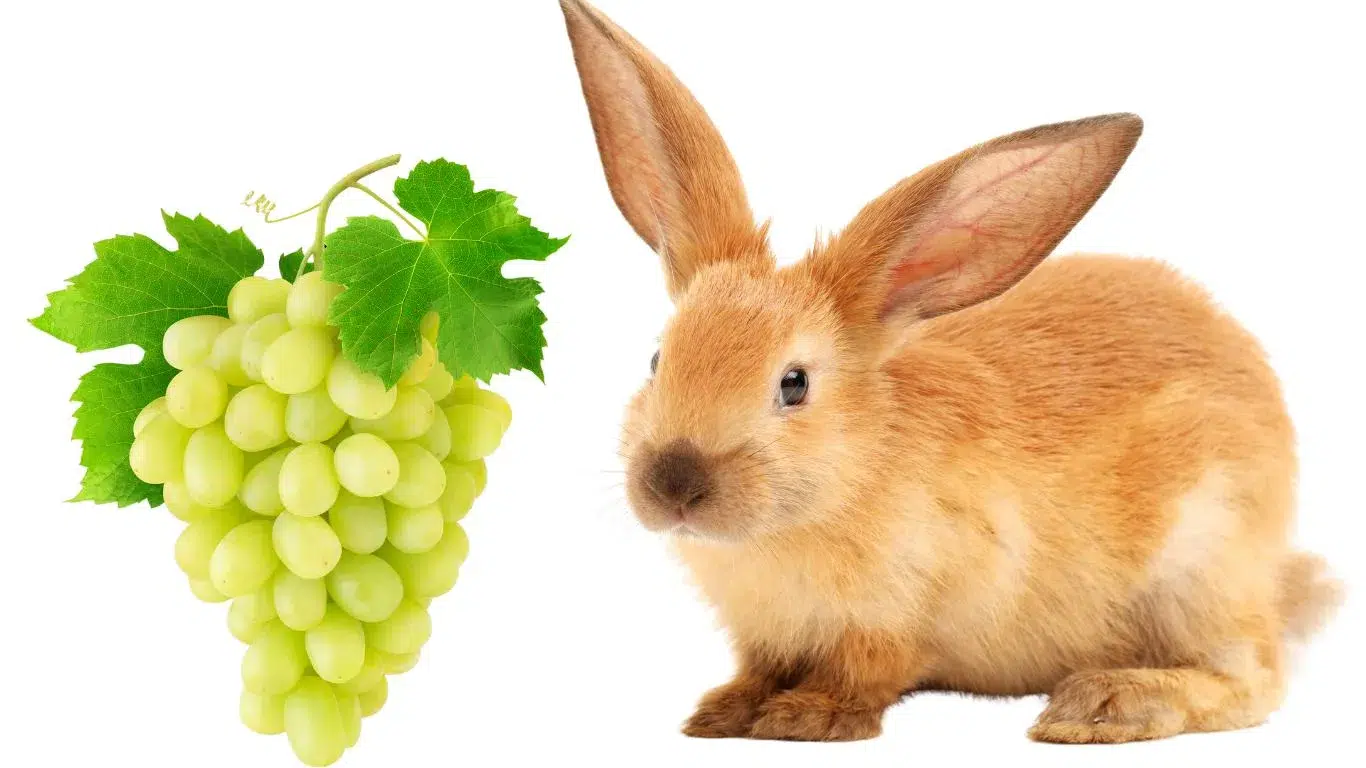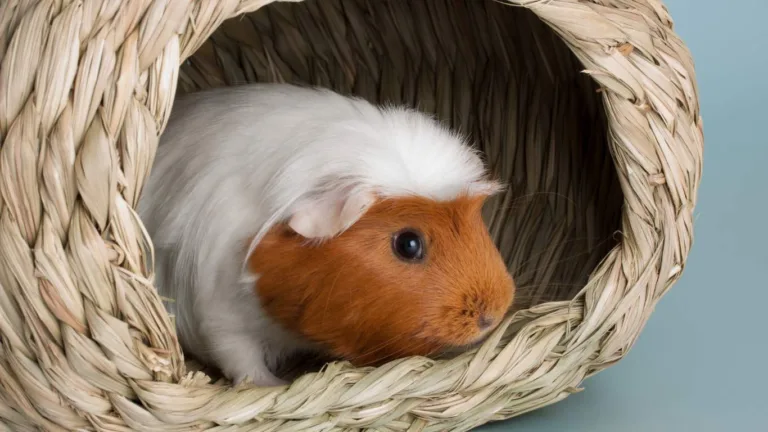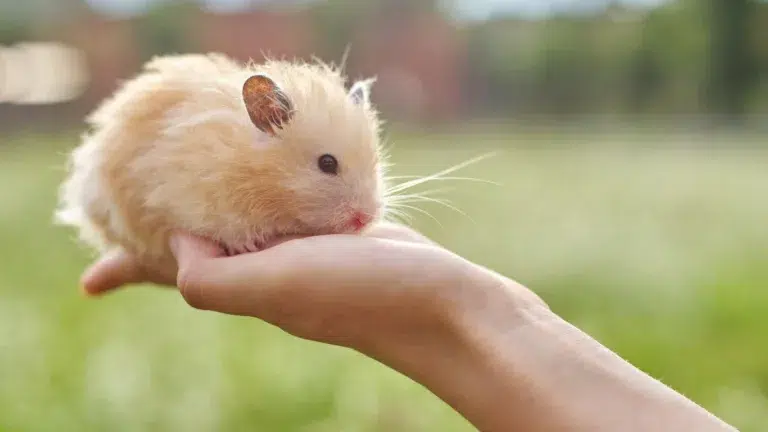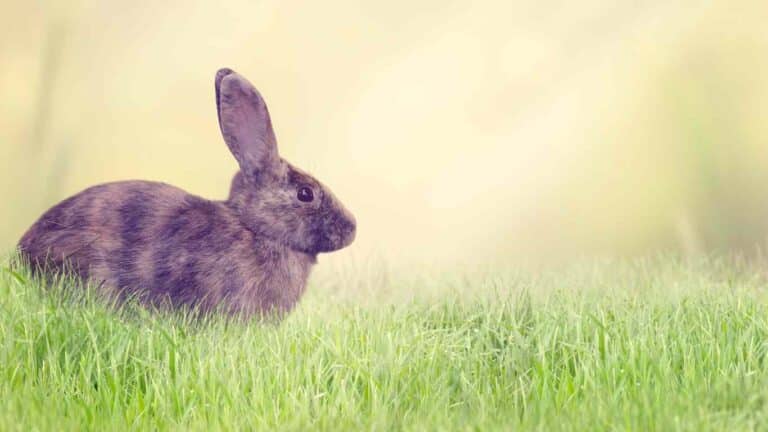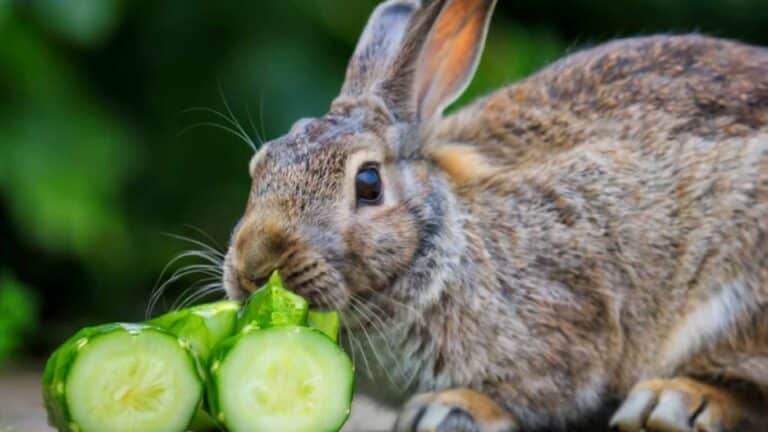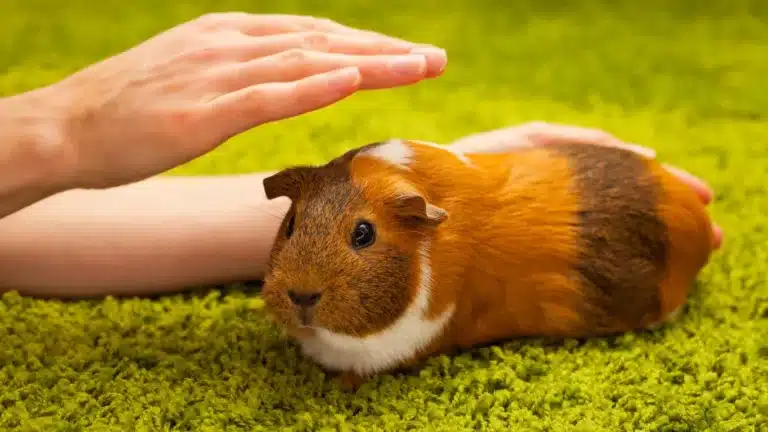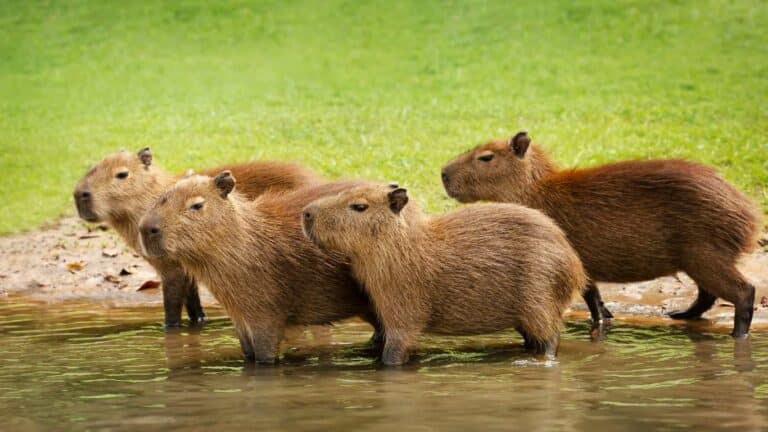Welcome to our comprehensive guide on rabbit nutrition. If you’re a rabbit owner, you might have wondered, “can rabbits eat grapes?” Well, the answer is yes, but there are some important things to consider.
Grapes can be a nutritious addition to a rabbit’s diet when given in small quantities. They contain antioxidants, vitamins, minerals, and have a high water content, which can benefit a rabbit’s health. However, it’s crucial to remember that moderation is key. Too many grapes can cause digestive issues such as diarrhea, gas, and bloating in rabbits.
If you decide to include grapes in your rabbit’s diet, it’s important to follow certain guidelines. Baby rabbits should wait until they are at least 12 weeks old before they can have grapes, as their digestive system is still developing. Additionally, it’s essential to choose seedless grapes to avoid the risk of choking on the seeds. Finally, always remember to wash the grapes thoroughly before feeding them to your furry friend.
Your rabbit’s well-being is our top priority, so we want to emphasize that grapes should be given in moderation. It is advisable to feed 2-3 small grapes or one large grape to your rabbit only 2-3 times a week.
While grapes can be a tasty treat, it’s important to provide a balanced diet for your rabbit. Let’s explore more about rabbit nutrition in the following sections to ensure your furry companion’s health and happiness!
Rabbit Rundown:
Understanding Rabbit Nutrition
When it comes to rabbit nutrition, it’s essential to understand that rabbits are herbivores and require a diet rich in fiber. Their digestive system is designed to process plant-based foods, and their dental health relies on their ability to chew on fibrous materials. So, what should a rabbit’s diet consist of?
The Importance of Hay
Hay should make up the majority of a rabbit’s diet. It provides essential fiber that helps maintain healthy digestion and prevents common issues like hairballs. Additionally, chewing on hay helps rabbits wear down their constantly growing teeth, avoiding potential dental problems.
Supplementing with Pellets
Pellets are another component that can be added to a rabbit’s diet. They provide additional nutrients and can be particularly helpful for pet owners who want to ensure their rabbits are getting a balanced diet. However, it’s crucial to feed pellets in limited quantities, as an excessive amount can lead to obesity and other health complications.
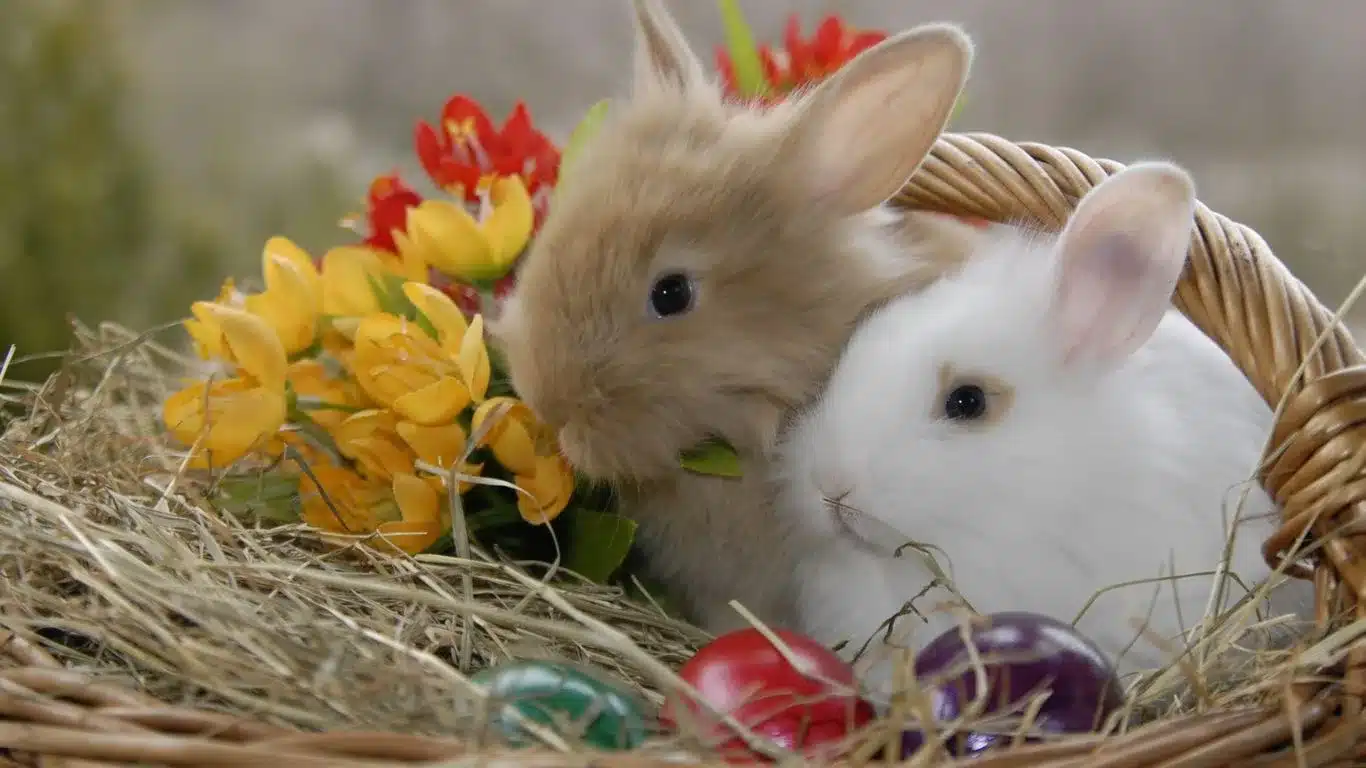
Adding Fresh Greens for Variety
While hay and pellets are the mainstays of a rabbit’s diet, fresh greens can be included to add variety and additional nutrients. Leafy vegetables like kale and spinach are excellent choices, as they are packed with vitamins and minerals. Some root vegetables like carrots can also be included, but it’s important to keep in mind the sugar content and feed them in moderation. Can Rabbits Eat Grapes is a question that often arises when considering fruit options for rabbits.
However, it’s essential to be cautious about certain vegetables like onions, leeks, and chives. These vegetables contain compounds that can cause blood abnormalities in rabbits, making them harmful if consumed. Additionally, when considering fruits like grapes, it’s crucial to ask, Can Rabbits Eat Grapes, to ensure they are safe and healthy for rabbit consumption.
Here is a breakdown of a balanced rabbit diet:
| Component | Proportion |
|---|---|
| Hay | 70-80% |
| Pellets | 5-10% |
| Fresh Greens | 10-15% |
Providing the right nutrition is crucial for maintaining your rabbit’s overall health and well-being. By understanding their dietary needs and ensuring a balanced diet of hay, pellets, and fresh greens, you can help your rabbit thrive.
Can Rabbits Eat Grapes?
Grapes can be a tasty and nutritious treat for your pet rabbit. They contain antioxidants, vitamins, minerals, and water, which can contribute to a rabbit’s overall health and well-being. However, it’s important to remember that moderation is key when it comes to feeding grapes to your furry friend. Consuming too many grapes can lead to digestive issues such as diarrhea, gas, and bloating.
If you decide to share grapes with your rabbit, it’s recommended to offer them in small quantities. For adult rabbits, 2-3 small grapes or one large grape 2-3 times a week should suffice. However, it’s crucial to adjust the portion size based on your rabbit’s size, age, and overall diet. Remember that rabbits have sensitive digestive systems, so it’s best to approach introducing new foods cautiously.
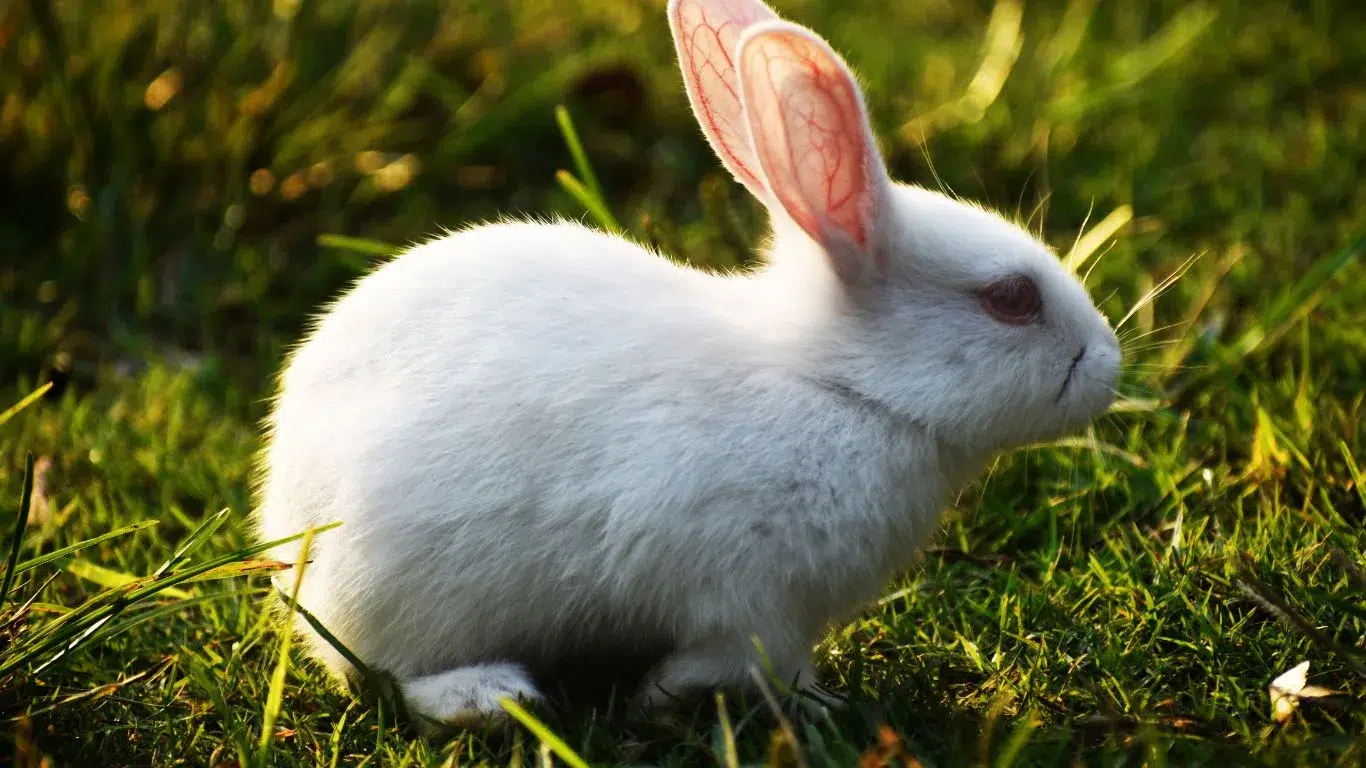
When it comes to baby rabbits, it’s advisable to wait until they are at least 12 weeks old before introducing grapes into their diet. Their digestive systems are still developing, and it’s important to ensure they can handle the fruit without experiencing any adverse effects.
Pro-tip: When selecting grapes for your rabbit, opt for seedless varieties to avoid the risk of choking on the seeds.
| Grapes for Rabbits: Dos and Don’ts | |
|---|---|
| Do: | Feed grapes in moderation |
| Choose seedless grapes | |
| Monitor your rabbit for any signs of digestive issues | |
| Don’t: | Overfeed grapes or make them a staple in your rabbit’s diet |
| Feed grapes to baby rabbits under 12 weeks old |
Remember to always wash grapes thoroughly before offering them to your rabbit. This helps remove any potential pesticides or contaminants that may be present on the fruit’s skin.
While grapes can be a delicious and nutritious addition to your rabbit’s diet when offered in moderation, it’s important to remember that they should not replace the fundamental components of a balanced rabbit diet, such as hay, pellets, and fresh greens. These provide essential fiber and nutrients that are crucial for your rabbit’s overall health and well-being.
Next, let’s explore a balanced rabbit diet in more detail and learn about other safe fruits and vegetables for your furry friend.
Please note: The image above illustrates a rabbit happily enjoying a grape. However, remember to feed grapes to your rabbit responsibly and in moderation.
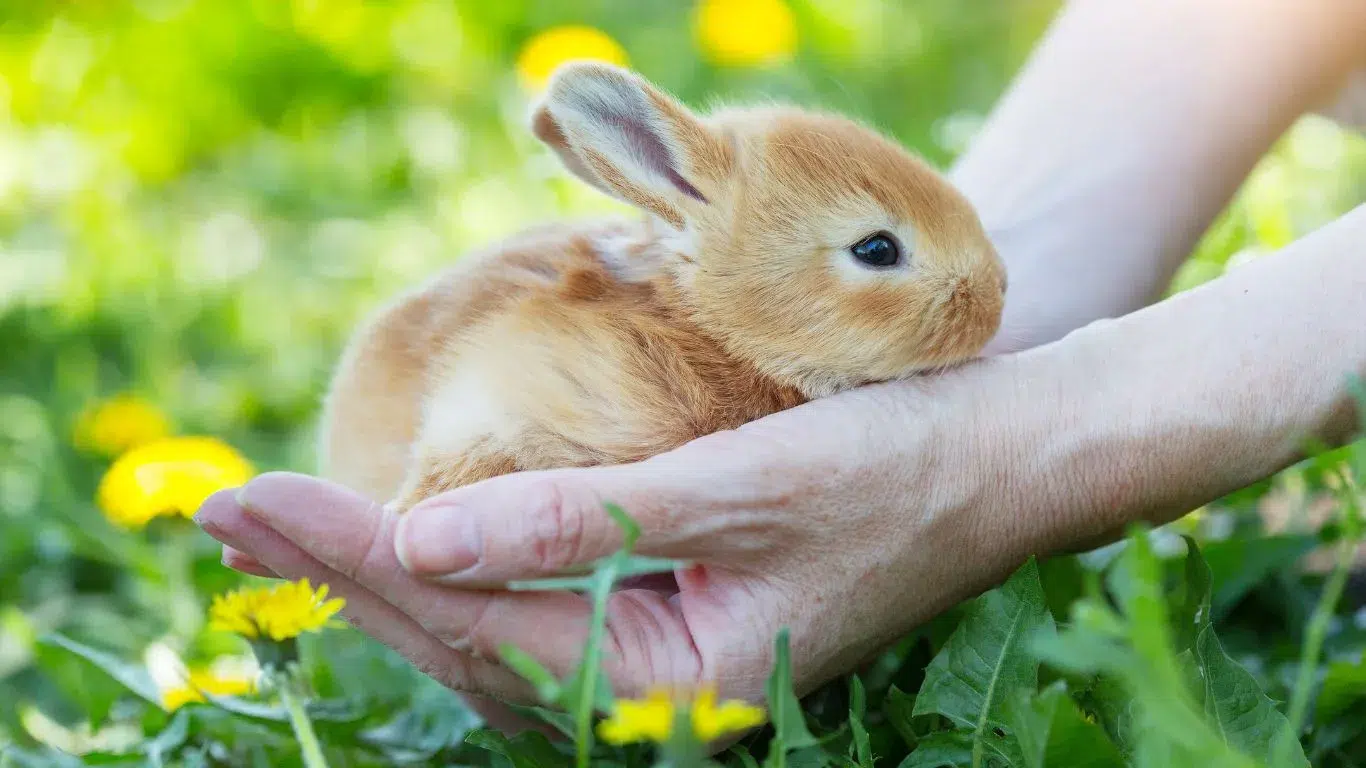
A Balanced Rabbit Diet
A balanced rabbit diet is essential for the overall health and well-being of your furry friend. It consists of three main components: hay, pellets, and fresh greens. These elements work together to provide your rabbit with a well-rounded and nutritious diet. Can Rabbits Eat Grapes?
Hay: Hay should make up the majority of your rabbit’s diet. It is a vital source of fiber, which helps to maintain a healthy digestive system and prevent issues like obesity and dental problems. Timothy hay and orchard grass are excellent options for rabbits and should be available to them at all times.
Pellets: Pellets can be a valuable addition to your rabbit’s diet, but they should be fed in limited quantities. Look for high-quality rabbit pellets that are specifically formulated for your pet’s needs. Pellets provide essential nutrients like vitamins, minerals, and protein. However, overfeeding pellets can lead to obesity and other health problems. Consult with your veterinarian to determine the appropriate amount of pellets for your rabbit.
Fresh Greens: Adding fresh greens to your rabbit’s diet can provide variety and additional nutrients. Leafy vegetables like spinach, kale, and romaine lettuce are excellent choices. You can also include some root vegetables such as carrots and radishes. It’s crucial to introduce new foods gradually to avoid digestive issues, and always monitor your rabbit’s response to new foods. Can Rabbits Eat Grapes?
| Hay | Pellets | Fresh Greens |
|---|---|---|
| Hay should make up the majority of the diet | Pellets should be fed in limited quantities | Fresh greens provide variety and nutrients |
| Rich in fiber for digestive health | Provides essential nutrients | Leafy vegetables and some root vegetables |
| Helps prevent obesity | Consult with a veterinarian for appropriate amount | Introduce new foods gradually |
Remember, a balanced rabbit diet is crucial for your pet’s overall health and well-being. By providing the right combination of hay, pellets, and fresh greens, you can ensure that your rabbit receives all the necessary nutrients for a happy and healthy life.
Safe Fruits and Vegetables for Rabbits
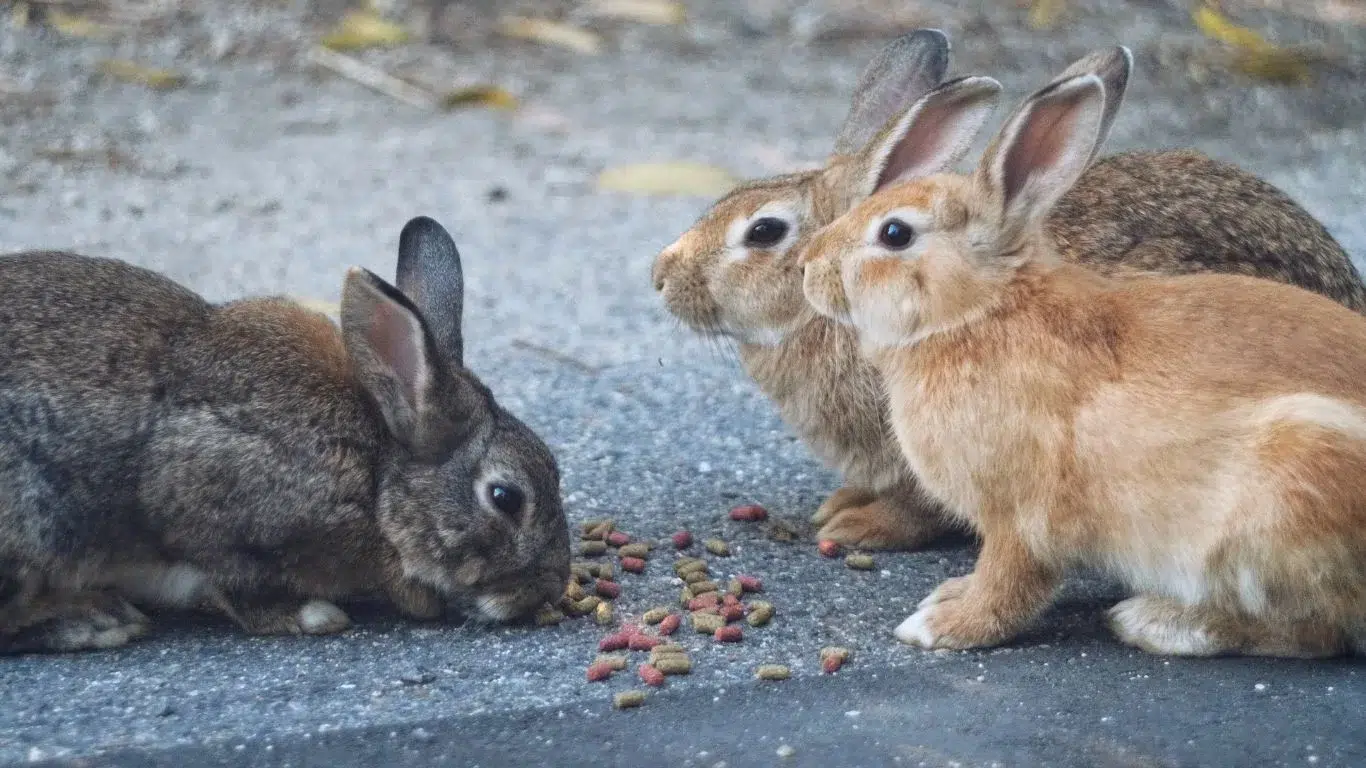
Certainly! Here’s the revised paragraph with the keyword “Can Rabbits Eat Grapes” inserted twice:
“Furthermore to grapes, rabbits can enjoy a variety of safe fruits and vegetables in their diet. Including these options can provide additional nutrients and variety to their meals. When selecting fruits for your rabbit, consider offering apples (without seeds), melons, pears, peaches, plums, and bananas. These fruits are not only tasty but also provide beneficial vitamins and minerals. ‘Can Rabbits Eat Grapes’ is a common question among rabbit owners, and the answer is yes, but in moderation.
When it comes to vegetables, leafy greens such as kale, spinach, and parsley are excellent choices. These greens are packed with essential nutrients and fiber. Additionally, some root vegetables like cauliflower and broccoli can be included in your rabbit’s diet. Remember to introduce new foods gradually and monitor your rabbit’s digestion for any adverse reactions. It’s important to note ‘Can Rabbits Eat Grapes’ and understand that while they can, it should be a rare treat.
It is crucial to feed these fruits and vegetables in moderation to maintain a balanced diet for your rabbit. Excessive consumption can lead to digestive issues or upset stomachs. Additionally, certain vegetables such as onions, leeks, and chives should be avoided as they can be toxic to rabbits. Always prioritize the safety and well-being of your furry friend when selecting foods for their diet.
Incorporating a variety of safe fruits and vegetables into your rabbit’s diet can help improve their overall health and well-being. Remember to consult with a veterinarian or animal nutrition expert for personalized dietary recommendations based on your rabbit’s specific needs. By providing a balanced and nutritious diet, you can ensure that your rabbit stays happy and healthy.
Forbidden Foods for Rabbits
When it comes to keeping your pet rabbit healthy, it’s important to be aware of the foods that can be toxic and harmful to their well-being. Certain foods that are safe for humans can have adverse effects on rabbits, causing digestive issues, blood abnormalities, or even leading to fatal consequences. It’s crucial to ensure that you are aware of the foods toxic to rabbits and avoid feeding them to your furry friend.
Foods to Avoid for Rabbits:
- Chocolate: This sweet treat contains theobromine, which is toxic to rabbits and can cause various health problems.
- Caffeine: Beverages like coffee and tea should never be given to rabbits, as they contain caffeine, which can be harmful.
- Avocado: Avocado contains persin, a substance that can be toxic to rabbits and cause digestive troubles.
- Onions and Garlic: These flavorful ingredients can cause blood abnormalities and should be avoided in a rabbit’s diet.
- Sugary or Salty Snacks: Foods high in sugar or salt, such as cookies, chips, or crackers, are not suitable for rabbits and can lead to health issues.
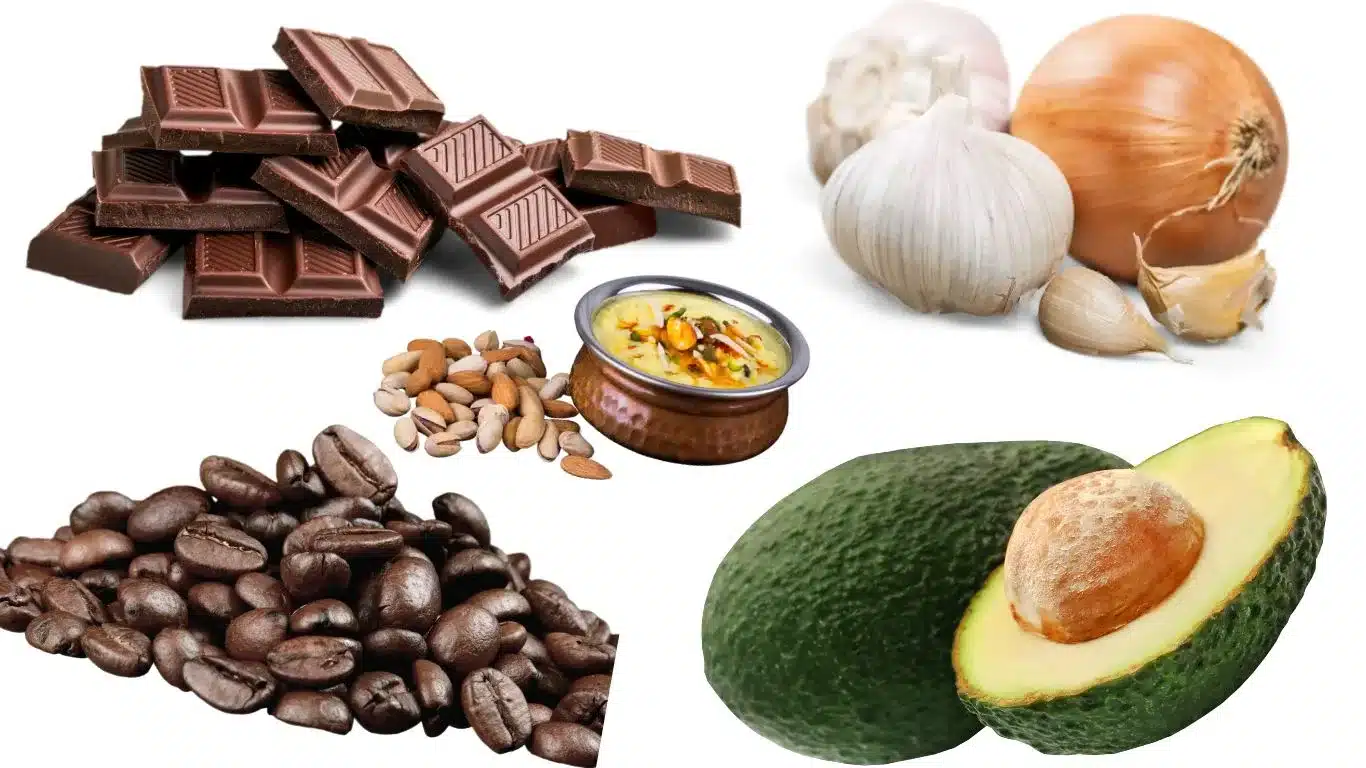
By being mindful of these forbidden foods, you can help protect your rabbit’s health and well-being. Always research and ensure that any food given to your rabbit is safe and suitable for their delicate digestive system. Consult with a veterinarian if you have any concerns or questions about your rabbit’s diet.
| Foods to Avoid | Potential Harm |
|---|---|
| Chocolate | Contains theobromine, which is toxic and can cause health problems in rabbits |
| Caffeine | Found in coffee and tea, can be harmful to rabbits |
| Avocado | Contains persin, a substance toxic to rabbits and causing digestive issues |
| Onions and Garlic | Can cause blood abnormalities in rabbits |
| Sugary or Salty Snacks | High sugar or salt content can lead to health problems in rabbits |
Join the Pet Planet Diaries
Sign up for our newsletter to get the latest tips, stories, and exclusive insights into the wonderful world of pets.
Closing Remarks
Grapes can be a beneficial addition to a rabbit’s diet, providing antioxidants, vitamins, minerals, and hydration. However, it is important to feed grapes in moderation to avoid potential digestive issues. Baby rabbits should not be given grapes until they are at least 12 weeks old, as their digestive systems are still developing.
When feeding grapes to rabbits, it is recommended to choose seedless grapes to prevent choking hazards. Additionally, washing grapes before offering them to rabbits ensures cleanliness. Remember, the overall key to a healthy rabbit diet is variety, so while grapes can be included, it’s important to offer a wide range of fruits and vegetables in appropriate quantities.
Always prioritize the well-being of your furry friend by providing a balanced diet that includes hay, pellets, and fresh greens. While grapes can be enjoyed as a tasty treat, it’s essential to prioritize their health by following proper feeding guidelines. By ensuring a balanced and nutritious diet, you can help your rabbit thrive and maintain optimal health.
FAQ
Can rabbits eat grapes?
Yes, rabbits can eat grapes, but they should be fed in moderation. Grapes contain antioxidants, vitamins, minerals, and water, which can be beneficial for a rabbit’s health. However, too many grapes can cause digestive issues such as diarrhea, gas, and bloating. It is recommended to feed rabbits 2-3 small grapes or one large grape only 2-3 times a week.
When can baby rabbits eat grapes?
Baby rabbits should not be fed grapes until they are at least 12 weeks old. Their digestive system is still developing, and grapes can be too harsh on their delicate stomachs. It is best to wait until they are older before introducing grapes into their diet.
Are seedless grapes safe for rabbits?
Yes, it is advisable to choose seedless grapes when feeding them to rabbits. This helps to avoid the risk of choking on the seeds, which can be a potential hazard for rabbits. When feeding seedless grapes, make sure to wash them thoroughly before giving them to your rabbit.
What should a balanced rabbit diet consist of?
A balanced rabbit diet consists of hay, pellets, and fresh greens. Hay should make up the majority of a rabbit’s diet, as it provides essential fiber for digestion and dental health. Pellets can be added in limited quantities to provide additional nutrients. Fresh greens, such as leafy vegetables and some root vegetables, can be included to add variety to the diet.
What are some safe fruits and vegetables for rabbits?
Safe fruits for rabbits include apples (without seeds), melons, pears, peaches, plums, and bananas. Safe vegetables include leafy greens like kale, spinach, and parsley, as well as some root vegetables like cauliflower and broccoli. However, it is important to feed these fruits and vegetables in moderation and avoid toxic vegetables like onions, leeks, and chives.
What foods should be avoided for rabbits?
There are several foods that are toxic to rabbits and should be avoided. These include chocolate, caffeine, avocado, onions, garlic, and sugary or salty snacks. These foods can cause digestive issues, blood abnormalities, or be fatal to rabbits. It is important to always research and ensure that any food given to a rabbit is safe and suitable for their digestive system.
Can grapes be included in a rabbit’s diet?
Grapes can be included as part of a balanced rabbit diet in small quantities. They provide antioxidants, vitamins, minerals, and hydration. However, it is important to feed grapes in moderation to avoid digestive issues. Baby rabbits should not be given grapes until they are at least 12 weeks old, and seedless grapes should be chosen to prevent choking hazards. It is also important to wash grapes before feeding them to rabbits. Overall, a variety of fruits and vegetables can be added to a rabbit’s diet, but it is crucial to ensure they are safe and given in appropriate amounts.

